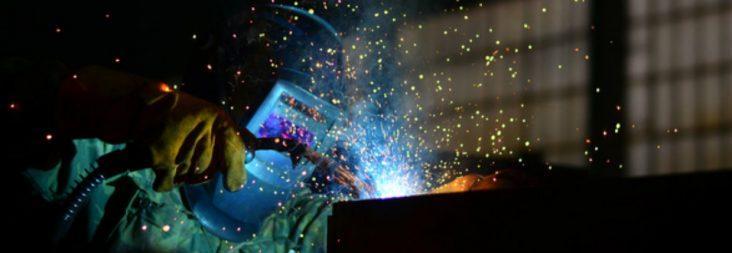UA economist sees tariffs leading to consumer price hikes, retaliation from other countries
by March 11, 2018 10:52 am 848 views

UA Walton College economist Mervin Jebaraj doesn’t see much upside to tariffs that President Donald Trump says he plans to impose.
On Thursday (March 8), Trump pulled the trigger on tariffs for steel and aluminum imports. The President’s order places a 25% tariff on steel imports and a 10% tariff on aluminum imports, and created exemptions for imports from Canada and Mexico during the renegotiation of the North American Free Trade Agreement.
Jebaraj, appearing on this week’s edition of Talk Business & Politics, said consumers are likely to see higher prices for many goods. However, the companies that make those goods could eat the input costs, but that would undermine recent corporate tax cuts.
“There’s several ways that this steel and aluminum tariff would directly impact consumers. So, if you start with he very basic goods, if you were going out on the weekend to enjoy a couple of beers, whether it’s your Miller Light, your Bud Light, or your favorite local craft brew, all of those are made using the same kind of metals.
Your canned foods, canned soups, all of that is made using the same kind of metal, so on all of those you’re going to expect to see higher manufacturing costs because of these tariffs, and it’s a matter of waiting and seeing whether manufacturers push those cost on to consumers,” he said, noting that higher costs for consumer goods could negate recent tax cuts.
Jebaraj also said manufacturers could not pass on costs to consumers, an unlikely scenario, but an option nonetheless.
“If manufacturers don’t push those costs on to consumers and try to eat them themselves, then you’ll see that eat into the corporate tax reform and the lower tax rates they were getting, so either way it affects the manufacturer and the corporate tax reform that they got or consumers and the individual income tax break that they got,” Jebaraj said.
The UA Walton economist also sees tariffs having the potential to raise construction prices, a volatile sector that frequently sees rising costs.
“The construction industry uses about 40% of steel that is used in this country and aluminum for that matter. And, you’re already seeing a lot of expensive input prices in construction, largely because there aren’t a lot of fully staffed construction crews available in the country, so construction prices are already up,” he said. “You’ll see that continue to go up as these steel and aluminum tariffs go into effect, so that pushes up the price of construction for multi-family homes, that pushes up the price of construction for commercial buildings. Combine that with what we’re expecting, interest rates to go up, building new multi-family buildings and new commercial buildings is going to get a lot more expensive.”
He warned that automobile, farm implement equipment, tools, and construction equipment prices could also see spikes due to higher steel and aluminum costs.
Jebaraj said that retaliatory tariffs from other countries will certainly be guaranteed.
“So, we impose tariffs on steel and aluminum coming into this country, other countries that are our trading partners are going to impose tariffs on what they think will affect us the most,” he said.
In 2002, the Bush administration imposed steel tariffs which led to the European Union raising tariffs on Florida oranges. Jebaraj suspects American agriculture, especially Arkansas, will pay a price.
“If they wanted to go after states that made up part of the administration’s political base, for example in Arkansas, they would go after agricultural products like rice and soybeans. So across the board there are different ways for countries to retaliate, impose different levels of political pain to get the U.S. administration to back off the tariffs that they have imposed so far. Again, there’s a wide menu of options for other countries to impose tariffs on us as well,” he said.
You can watch Jebaraj’s full interview in the video below.
